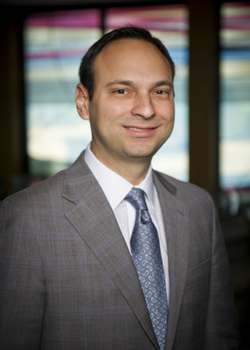This summer, my wife and I traveled to Israel with our three children. I celebrated my birthday there in Tel Aviv. We awoke early completely jet lagged at 4am and we walked from the beach to 16 Rothschild Street, where Israel’s first Prime Minister, David Ben-Gurion, declared Israel’s Independence on May 14th, 1948. We sat in the same room as Ben-Gurion, and listened to a recording of the members of that meeting recite the Shehechiyanu prayer for an event so special, so unique, that it hadn’t occurred in two thousand years.
Afterward, we scheduled a family surf lesson at the Israel Surf Club. We laughed as we all struggled to paddle hard enough and stand in the modest waves. And then, after all of the fun, we sat in the sand, enjoyed lunch, and my six-year-old son asked me, "Dad, why don’t we live here?"
Parshat Ki Tavo begins with the words of promise, "It will be when you enter the land that the Lord your God has given you as an inheritance…" (Deut. 26:1) Plain and simple, I believe Israel to be our Jewish inheritance. I grew up going to summer camp there on teen tours and have enjoyed many trips there with my family. When I enter the land that the Lord my God has given me as an inheritance, it always feels like home.
Yet, I live in a conflicted state of mind, in which I think of Israel as home while my mailing address is located in Los Angeles. For the foreseeable future, I don’t see that changing. When I came home in high school and informed my parents that I wanted to move to Israel and make aliyah, they informed me, "We haven’t sent you to Israel so many times for you to move there!"
That moment on the beach in Tel Aviv felt like déjà vu. My son, much wiser at a much younger age than me, was noticing an inconsistency in the way my wife and I raise him, namely, to love Israel while living in America. It is the same inconsistency with which I was raised. I could see in my son’s face the same logic I maintained years ago in high school. In that moment, my son was pushing me to a higher level.
Now as an adult, as a husband, as a father, and as a rabbi, I don’t see the issue as so black and white. I don't see loving Israel and living in America as a conflict at all. When I enter the land, I recognize that I can love Israel without liking every single aspect of her. When I enter the land, I can feel a special bond that my great-grandparents yearned for and could never realize.
Maybe, just maybe, if all Zionists moved to Israel, that wouldn’t leave a strong enough, supportive enough diaspora to help her. Maybe that’s why we still need to read Ki Tavo and reflect on it. Maybe that’s why we still need to read the Torah as a community for divine direction. Maybe with that simple question on the beach, my son became my rabbi.

